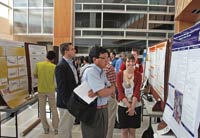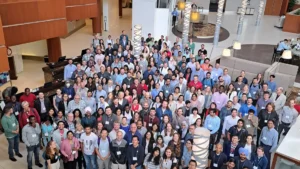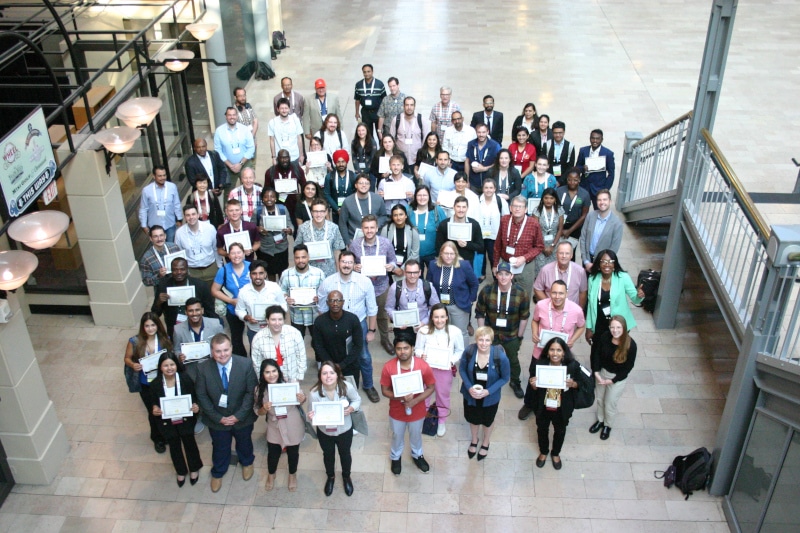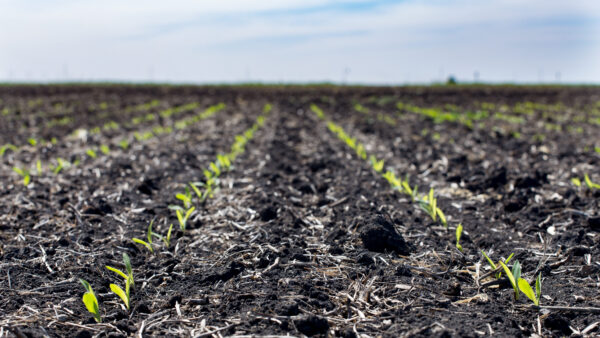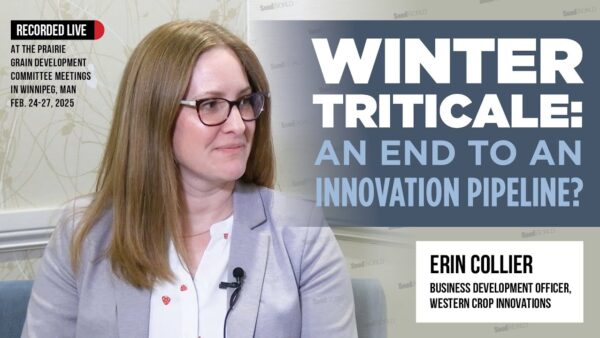Plant Breeders across North America are poised to offer exciting solutions to major challenges including climate change and food security.
Seth Murray, a corn breeder at Texas A&M, and his team of graduate students are breeding new hybrids of blue and red corn lines and studying their antioxidant potential. Antioxidants have desirable health benefits and the research could lead to viable new corn varieties with high antioxidant content. “This research is really exciting because if we can increase antioxidants in our diet hopefully that will lead to a healthier population, a healthier planet,” says Murray.
Murray’s innovative corn research was just one of many projects highlighted at the joint annual meeting of the Plant Breeding Coordinating Committee and the National Association of Plant Breeders held at Texas A&M in College Station May 23-25, 2011. Plant breeders from across North America had a chance to share their cutting edge research with colleagues and peers.
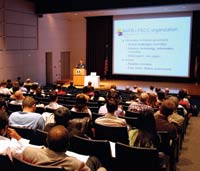
“We can’t train students appropriately without vital breeding programs behind that education so funding for public research is critical today,” says Rita Mumm, director of the Illinois Plant Breeding Center and incoming president of NAPB. Mumm says a top priority for NAPB in 2011 will be education and outreach.
By 2050, the number of humans is expected to exceed 9 billion. Providing food, feed fuel and fiber for this enormous population is an ominous challenge facing humankind, without significant addition of new arable lands, challenges of changing weather patterns and decreased quantity and quality of fresh water.
The world faces unprecedented challenges in providing for itself food, fiber, fuel, feed and a multitude of plant derived products, while also improving health, reducing inputs and helping rectify the global environment pressures,” says David Stelly, vice president of NAPB. “Diminishing resources exacerbate the agricultural challenges, because the United States and the world must create means to produce more and better quality products, with less land, water and fertilizers. The development of high-performing plants through plant breeding offers multi-dimensional solutions to many of the most pressing problems, and concomitantly provides for the creation of new, diverse opportunities, domestically and globally.”
There is agreement throughout the industry that plant breeders are the key to developing superior crops to meet these world needs and part of NAPB’s mission is to spread the word. “There needs to be a sense of urgency around plant breeding as an important contributor to managing all kinds of global change, which is coming to us with increasing velocity,” says Donn Cummings, global breeder sourcing lead for Monsanto. “While these challenges are daunting and complex, agricultural innovation, delivered with the aid of plant breeding innovation, remains central to our well-being.”
Several prestigious awards were also handed out at the meeting. Jules Janick received the Lifetime Achievement Award for his leadership in basic and applied research in the genetic enhancement of apple and pear, ornamental plants, vegetables, and medicinal herbs. Professor Janick has carried out pioneering work in the genetics of sex determination and made important contributions to the field of somatic embryogenesis and synthetic seed technology. He is also founder and editor of Plant Breeding Reviews and Horticultural Reviews, which have become sourcebooks of technical information in both fields.
Sterling Brooks Blanche received the Early Career Award from the NAPB for his excellent contribution to plant breeding in a short time. He started as a medium-grain rice breeder with LSU AgCenter and was involved in the release of eight cultivars. He has numerous publications and has been associated with $2.1 million of grant funding since 2006.
Shelby Repinski received the Outstanding Graduate Student Award for continued involvement in the plant breeding community. As an upcoming UC Davis graduate, she is a coauthor on three publications on the Delphi study on plant breeding curriculum. Repinski is the first graduate student liaison for the PBCC where she actively coordinated and recruited graduate students to be involved in the plant breeding community.
The Plant Breeding Coordinating Committee was formed several years ago to serve as a forum regarding issues and opportunities of national and global importance to the public and private sectors of the U.S. national plant breeding effort. Last year, the National Association of Plant Breeders was begun as an initiative of PBCC and is the advocacy group that represents plant breeders in federal, state, commercial and non-government organizations. Julie McNabb


